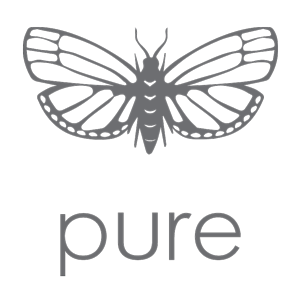Looking after your mental health
As we move through the governments roadmap and gradually return to some levels of normalcy, but with residual uncertainty never far away, it is not surprising that many of us are feeling rising levels of fear and anxiety.
What is most important to highlight straight away is, it is critically important you take the steps that feel right for you and at your own pace, and if your feelings become overwhelming to such a degree that they start affecting your sleep and daily life, seek professional medical help immediately
It is completely normal
to feel some level of unease, fear or anxiety when considering doing something that has previously been against the recommended guidelines, like socialising with friends inside, out of our bubble, or without a mask.
Fear is a universal human emotion
– we all experience it at some time in our lives. It is triggered in the limbic system by the amygdala which stimulates the hypothalamus to activate the bodies “fight or flight” response.
The “fight or flight” response triggers two stress hormones: cortisol and adrenaline. Both hormones are released from your adrenal glands to prepare your body to flee or fight. Cortisol is a steroid hormone that affects many of your body’s functions, including preparing it for the fight-or-flight response. The main job of adrenaline, also called epinephrine, is to stimulant your body systems so they’re ready to respond to a threat.
These hormones and the associated emotional and physical reactions can be extremely useful to us when we are presented with real and present danger, but when these responses are inappropriate or disproportionate to the circumstances they can also be completely disabling. Sometimes referred to as “amygdala hijack”, symptoms can be eased or stopped by consciously activating your frontal cortex, the rational, logical part of our brain. This will take some practice, persistence, and greater understanding and awareness of self.
Knowledge is power!
Some tips to help you activate your frontal cortex, cope with “amygdala hijack” and reconnect to your joy:
1. Consciously acknowledge what is happening and that you understand your stress response has been triggered.
2. Remind yourself that what you’re feeling is an automatic response, not necessarily the best, most logical or resourceful one. Use your frontal lobes to think the situation through, review the possible options, and choose the most rational and logical way to respond.
3. Become aware of your triggers and warning signs and notice when they’re present.
4. Learn to be present and open by developing psychological flexibility (3 pillars):
a. Accept what you can’t change and move forward anyway
b. Connect with the present moment – what matters right now
c. Defuse don’t amplify negative feelings
d. Focus on you
e. Do what really matters to you and value clarity and committed action.
5. Pay attention to your breathing and change your brains focus to one of peace and calm:
a. Breathe slowly and evenly
b. Think about the speed and rhythm of your breaths and focus on what’s going on in your body as you inhale and exhale.
c. Mentally locate all the physical parts of your body in your mind and recognise how you feel.
d. Recall a time, event or experience that made you feel happy. Remember it as if it were happening in this very moment. Notice what you feel and where you feel it.
6. Book a holistic therapy such as Reiki or aromatherapy
7. Ask for Help
8. Create a supportive system around you that you trust
9. Join a support group
10. Be Kind to yourself
11. Eat Well
12. Adopt mindfulness practices including making art and crafts, journaling, gratitude, and meditation
13. Celebrate your wins – even the smallest
14. Exercise – yoga, running, cycling, dance….
15. Walk in nature
16. Have a digital detox day: https://en.wikipedia.org/wiki/Digital_detox
17. Do it for you!
Extreme cases of anxiety could also be linked to a clinical condition, for example a depression that is severe and does not pass, severe panic attacks or a disorder such as social anxiety (SAD). It’s normal to feel a bit anxious or shy when meeting new people or entering a room of strangers, but most of us can get through it. SAD goes beyond these feelings and affects our physical and mental health, preventing us from getting through the situation and if we do manage to get through it, layering on post activity crippling anxiety. This disorder can affect all areas of a person’s life. Typical symptoms include rapid heart rate, laboured breathing or breathlessness, sickness, and diarrhoea, out of body sensation, over thinking
If you think you may be suffering from a clinical condition, please seek medical support immediately.
RESOURCES
Watch
Nadine Searle meditation: https://www.youtube.com/watch?v=prhVrWRQ06A
Headspace: https://www.youtube.com/watch?v=QzNSgdV9qYU
Mind: https://www.youtube.com/watch?v=oPmKH00kIpA
Read
https://www.refinery29.com/en-us/2021/04/10448755/new-no-mask-rule-anxiety-impact
https://www.healthline.com/health/mental-health/surprising-foods-trigger-anxiety
https://www.healthline.com/health/food-nutrition/drinks-for-stress-anxiety#maca


